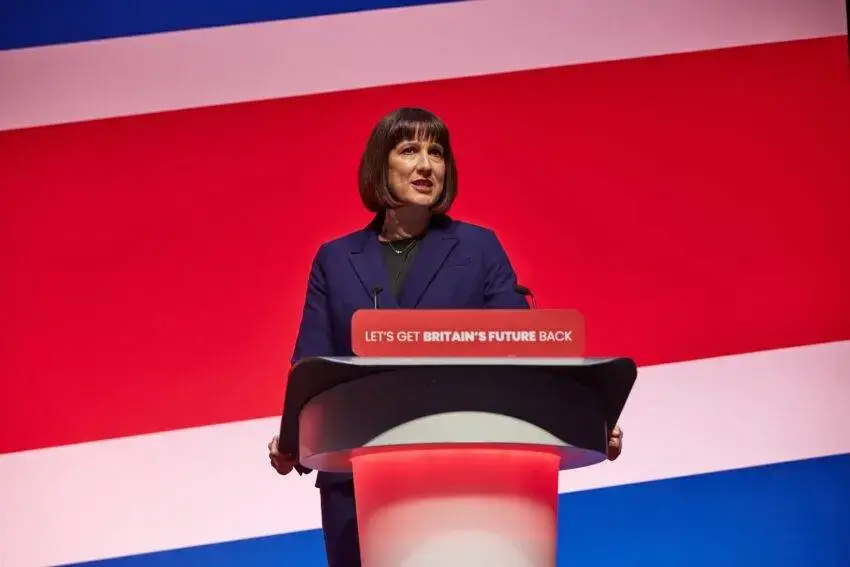Rachel Reeves, the Shadow Chancellor, is under increasing pressure to consider a hike in capital gains tax (CGT) as part of Labour’s broader fiscal strategy. Facing the challenge of funding public services without raising VAT, income tax, or National Insurance Contributions, Reeves is evaluating various measures.
Labour insiders suggest that Reeves is considering twelve different fiscal strategies to bolster public finances. Among these, raising CGT is seen as a significant potential revenue source, aligned with the party’s commitment to fully costed and funded plans.
Exploring Alternative Revenue Measures
With increases in income tax, national insurance, and VAT off the table, Rachel Reeves is exploring alternative revenue-raising measures. Labour insiders reveal that she is evaluating up to twelve potential fiscal strategies to bolster the public coffers. A source close to the discussions commented that each measure is designed to contribute modestly to the overall budget, cumulatively generating significant funds.
The push for a CGT hike comes as part of a broader strategy described by one Labour figure as a “kitchen sink” approach. This aims to secure the necessary funds for radical public service investment and reform by unveiling all potential fiscal measures upfront to justify substantial interventions.
Commitment to Funded Plans
Despite these deliberations, a Labour spokesperson emphasised the party’s commitment to fully costed and funded plans. They noted, “We have identified specific tax loopholes to close for immediate revenue without increasing taxes.”
The proposed plans emerge amidst a heated debate with the Conservative Party over tax policies. Prime Minister Rishi Sunak has accused Labour leader Keir Starmer of planning extensive tax hikes, a claim Labour has dismissed as misleading.
The Challenge of New Revenue Streams
Reeves has already ruled out significant tax increases, including almost all major taxes. However, she acknowledges the pressing need for new revenue streams to avoid deep cuts to public services in the next parliamentary term.
Labour’s current proposals include increasing the windfall tax on oil and gas companies, eliminating tax exemptions for private schools, and tightening regulations on non-doms. These measures, however, may not be enough to bridge the funding gap.
The Resolution Foundation recently warned that without additional revenue, the next government could face £19 billion in cuts to unprotected departments by 2028-29. This would impact sectors like local government, the Home Office, and the courts.
Aligning CGT Rates with Income Tax
Some Labour members advocate for aligning CGT rates with income tax. This could potentially increase the higher rate from 24% to 40% or 45%, which is estimated to raise £8 billion.
This approach mirrors a move by former Conservative Chancellor Nigel Lawson in 1988, later reversed by subsequent Labour budgets. Alternatively, Labour could revert to the pre-2023 budget CGT rate on second homes, raising it from 24% to 28%.
However, the Office for Budget Responsibility predicts minimal fiscal gain from this adjustment.
Health and Social Care Levy
Another option under consideration is reinstating the health and social care levy. This levy, a 1.25 percentage point rise in national insurance, was originally introduced by Boris Johnson and later scrapped by Kwasi Kwarteng.
This levy, which would have included pensioners, was intended to fund health service improvements. Despite support from notable figures like Sir Nicholas Macpherson, former Treasury head, insiders suggest Reeves is unlikely to reintroduce it.
Finalising Labour’s Manifesto
As Labour officials prepare to finalise the party’s manifesto, due next week, the focus remains on finding viable fiscal solutions to ensure robust and sustainable public services under a potential Labour government.
Reeves and her team are keen to present a set of measures that can realistically achieve their objectives without breaking their pledge against significant tax hikes.
Political Context and Implications
The political context of these deliberations is crucial. Labour’s fiscal strategies are being closely scrutinised by both supporters and opponents.
How Reeves balances these competing demands will likely shape the party’s economic credibility and the public’s perception of its ability to govern effectively.
Rachel Reeves faces a challenging task as she navigates the complexities of funding public services without major tax increases. Balancing fiscal responsibility with the need for new revenue streams is no easy feat.
As Labour’s manifesto takes shape, the decisions made now will have long-lasting impacts on the public sector and the party’s political fortunes. The pressure is on to find solutions that are both effective and acceptable to the electorate.

